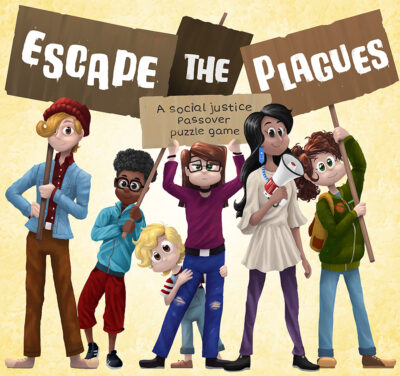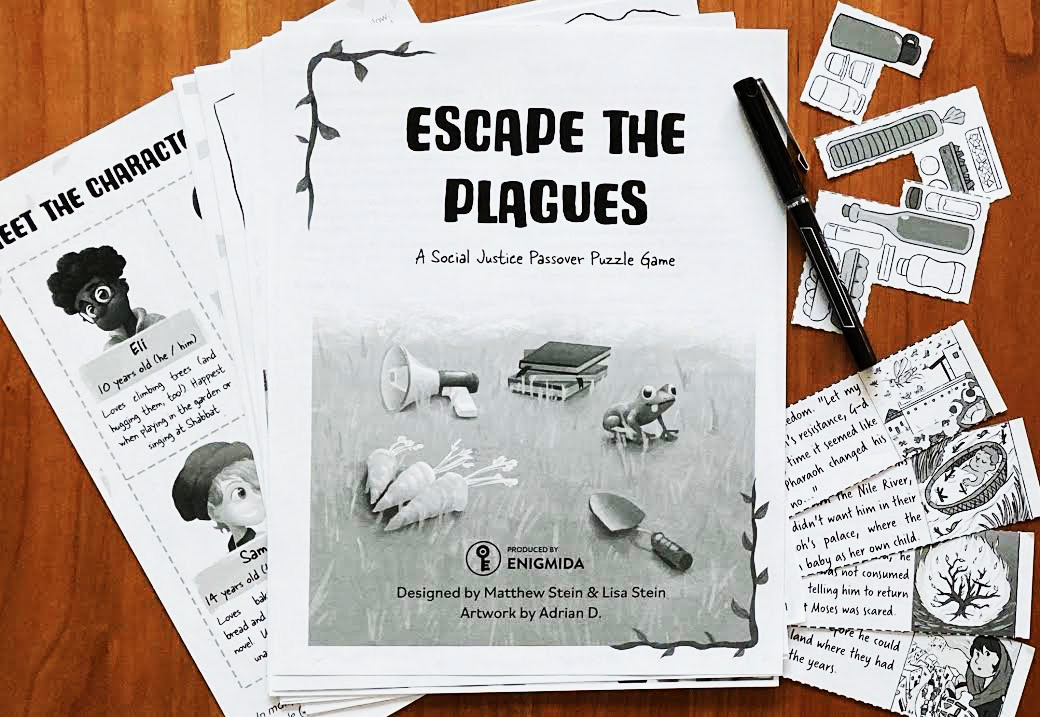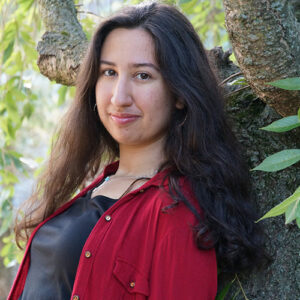This Passover, a different set of Four Questions are on my mind: Can an escape room be a spiritual endeavor? Can play help us feel connected to the people around us? Can games be holy work? Can puzzles help us engage with the challenging social justice themes of the Passover story?
I am captivated by Rabbi Abraham Joshua Heschel’s concept of “radical amazement” in which “to be spiritual is to be amazed.” This principle guides my Jewish worldview. I’m a senior at Wesleyan University studying music, religion, and Jewish studies; and I spend my summers working at Eden Village Camp, a Jewish organic farm camp, where I create programming to help young campers be radically amazed by the natural world around them. Using an eclectic mix of music, silly games, and whimsical questions, I have designed and led programs for many Jewish communities, connecting people of all ages to their Jewish roots and to each other. Until a few months ago, I would have told you that “I don’t do puzzles.” This lack of a puzzle-passion would go entirely unnoticed in most people’s lives, but my brother, Matthew, happens to be a professional puzzle designer, so I hear the word “puzzle” at least eighty times every day.
Matthew creates puzzle experiences that are driven by story, guiding people into a magical world of wonder where anything can be a puzzle and where solving puzzles transforms the way solvers see the world around them. Through the process of solving a puzzle, solvers can be led to recognize their own pre-existing biases and puzzle through a situation from a different perspective. Using puzzles as a tool for engaging with challenging issues through thought-provoking play has incredible—but largely untapped—potential. Most escape rooms stay away from heavy or serious themes, and only a few puzzle games, such as The Privilege of Escape, have begun to utilize immersive puzzling for social transformation.
The more I learned about Matthew’s puzzle design theory, the more I questioned my “I don’t do puzzles” attitude and began to discover the deep connections between puzzle design and Heschel’s idea of radical amazement. Solving a puzzle means looking at something from a new perspective, appreciating its intricacy, and striving and struggling together to understand it. If this isn’t a way of practicing radical amazement, I don’t know what is.

Matthew had been toying around with the idea of creating a Passover-themed escape room ever since he started his puzzle design company, Enigmida, in 2019. As the pandemic demand for home-friendly puzzle games is higher right now than ever before, Matthew decided that now was the perfect time to finally create Escape the Plagues, and he invited me to join the project. Complementing Matthew’s puzzle design expertise, I brought my experience with creative Jewish programming, and we collaborated with an extraordinary children’s book illustrator from Guatemala, Adrian D.
Together, we designed Escape the Plagues as a unique blend of puzzles, story, commentary, questions, and artwork. The story features six illustrated characters, uplifting the voices of Jews of Color, nonbinary folks, and Indigenous activists. People who play Escape the Plagues are immersed in the story by choosing a character to play and reading script-style dialogue that’s surrounded by Talmudic-style commentary and discussion questions. Through the interweaving of story and puzzles, players engage with themes of community solidarity, climate justice, Indigenous activism, mutual aid, and Jewish anti-racism and their deep roots in the Passover story. The game is guided by the larger questions: How can we truly escape? What does it mean to be free? Can we really be free if we are not all free?
We designed Escape the Plagues to reach a wide range of Jewish individuals and intergenerational families from many backgrounds. Teams of 2-6 players, ages 9+, can play Escape the Plagues before, during, or after their Seder. While it’s easily shareable over video chat, the game itself doesn’t require any screens. Escape the Plagues is available for $15 per team at escapetheplagues.com, and discounted group rates are available for larger communities. 18% of the proceeds will be donated to Jews of Color Initiative and Earth Guardians.
Perfectly in line with the Jewish traditions of questioning, finding hidden meanings, and practicing radical amazement, puzzles have the power to take our Passover experiences to a whole new level this year, and I truly hope you’ll join us on this adventure. I believe that the best answers to questions are questions themselves, so when I return to my own set of Four Questions this year, my answer is, “Yes, but how?”

